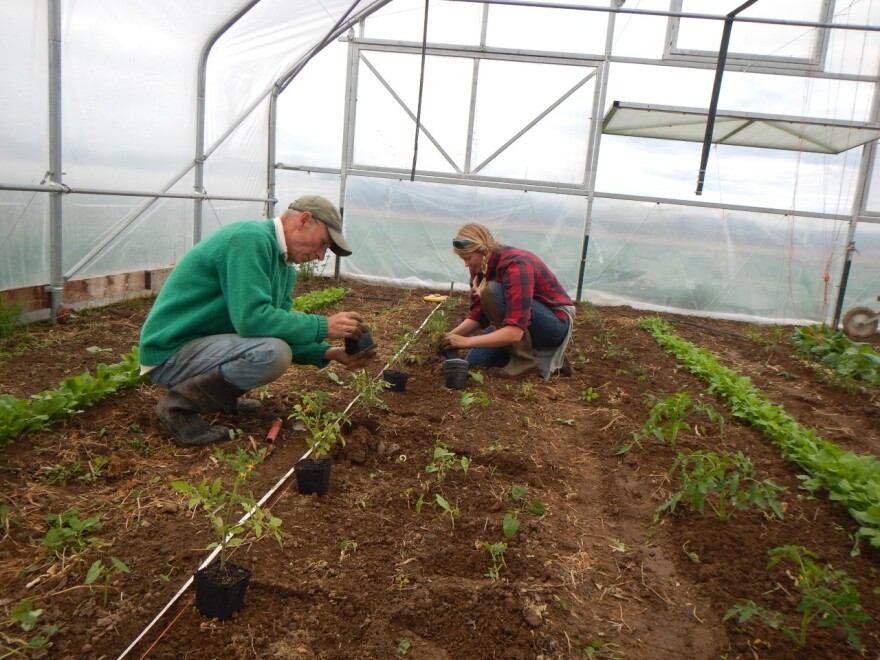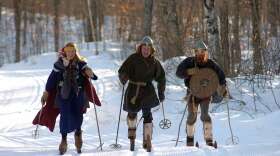While the stay-at-home order has us remaining in place, it’s also sparked interest in getting outside and gardening as another way to provide food and limit what you’ll need at the grocery store.
But if you’re considering growing food for the first time, knowing what to plant and when can be a big task. WUWM farming contributor Dave Kozlowski of Pinehold Gardens in Oak Creek plans to keep planting and harvesting as normal, with the hope of a farmers market in the near future.
Kozlowski says, if you are interested in planting right now, we’re still in the cold weather plant season for things like lettuce, spinach, beets. Once warmer weather starts, some of the most popular garden plants are part of the solanaceous group.
"The three big ones are tomatoes, peppers and eggplants," Kozlowski says. "These three I consider sort of eye candy for the market because they can really dress up a farm stand."

Plants in the solanaceous groups are planted and harvested later in the season, so even if farmers markets are delayed, there is still a good possibility you won't miss out on these popular vegetables from a farm stand.
Kozlowski says that while tomatoes, peppers and eggplants are the "three biggies," the two "wannabes" are tomatillos and ground cherries, which "are very similar botanically, but culinarily entirely different."
The "odd duck" of the family is the potato, says Kozlowski. While the other vegetables produce a fruit, if you allow potatoes to flower, they will occasionally grow a little green tomato-like fruit. "Totally inedible as far as I know, but that's its recognition of where it came from," he notes.
Kozlowski says he's seen a lot of renewed interest in gardening as we're all "corona-coping." He says it's important to keep in mind that the weather needs to be warm enough to start growing solanaceous plants, since they're all tropical or subtropical plants.

"[These plants] don't even like to drop temperatures below 50 degrees, so you need to have a nighttime temperature above 50 degrees and your soils needs to be warm," Kozlowski explains. "So if you're gonna grow it in your garden, definitely find the warmest place in your yard to put your garden if you want to grow these crops. And you definitely have to grow the transplants because it's going to take you a month and a half before you get a fruit — maybe even two months depending on how much sun you get."
Memorial Day is a typical planting weekend for many, but with this year being unusual weather-wise, Kozlowski recommends keeping an eye on the weather before you plant.







